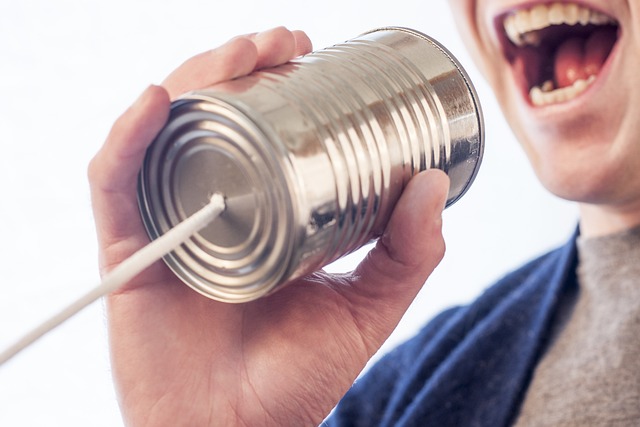Decoding Wisdom Teeth: The Potential Link to Swollen Lymph Nodes
???? Welcome to our informative article where we take a closer look at the mysterious world of wisdom teeth and ????their potential ????connection to swollen lymph nodes. We understand that grappling with dental concerns can sometimes leave us scratching our heads, and that’s why we’re here to help decode the???? enigmatic relationship between these two. So, grab a cup of tea, sit back, and let us unravel the intriguing mystery behind wisdom teeth and those pesky swollen lymph nodes.
1. Understanding Wisdom Teeth: An ????Introduction to Their Role in Dental Health
Wisdom teeth, also known as third molars, are a???? set of ????four permanent teeth that typically emerge during a person’s late teens or early twenties. These teeth were an essential part of our ancestors’???? diet, as they played a crucial role in grinding down tough foods, such as roots, nuts, and meats. However, as our diets have evolved and our jaws have become smaller over time, wisdom teeth no longer serve a significant purpose in ????chewing and are often more trouble than they are worth.
For many people, wisdom teeth can cause a range of dental issues. Due to limited space in the mouth, these teeth often grow in at an angle or ????become impacted, meaning they fail to fully emerge through the gum line. This can lead to pain, inflammation, and even infection. Additionally, wisdom teeth that do manage to erupt can cause crowding and shifting in adjacent teeth, resulting in???? alignment problems and potential damage to surrounding structures.
-
????
- Signs and symptoms: If you’re experiencing pain or discomfort in the back of your mouth, ????jaw stiffness, ????swelling, or bad breath, it ????may be a result of problematic???? wisdom teeth.
- Diagnosis: Your dentist will perform a ????thorough examination, which may include X-rays, to determine the position and condition of your wisdom???? teeth.
- Treatment options: Depending on the individual case, removing the wisdom teeth through surgical extraction is often recommended to prevent future ????complications and promote oral health.
Remember, not everyone will require wisdom tooth extraction. Some lucky individuals have enough space in their mouths ????for these teeth to emerge correctly without causing any issues. Regular dental???? check-ups and ????discussions with your dentist can ensure that you are well-informed about your specific dental needs and whether or not your wisdom teeth require attention.

2. What Are Swollen Lymph Nodes and How Are They Connected to Wisdom Teeth?
Swollen lymph nodes are an important part???? of our immune system. They act as filters, trapping???? and destroying harmful bacteria and viruses that enter our body. When our lymph nodes become???? swollen, it is usually a sign that our immune system is fighting an infection. However, ????did you ????know that swollen lymph nodes can also be connected to wisdom teeth?
Wisdom teeth, also known as third molars, usually start to emerge between the ages of 17 and 25. These teeth are located at the back corners of the mouth and often don’t have enough space ????to grow properly. As a result, they can become impacted, meaning they are not able to fully break through the gum line. This can lead to a variety of issues, including infection. If an impacted wisdom tooth becomes infected, it can cause nearby lymph nodes to swell as they work to ????fight off the infection.

3. Exploring the Symptoms: How to ????Recognize Swollen Lymph Nodes in the Jaw ????Area
Swollen lymph nodes in the jaw area can be a cause for concern, as???? they may indicate an underlying health ????issue. It’s essential to be???? familiar with the symptoms to help recognize ????when you have swollen lymph nodes in this???? specific region. Here are some signs to look out for:
- Tenderness: Swollen lymph nodes???? in the jaw area may???? feel tender to the touch. If you notice discomfort or pain when pressing on???? the ????nodes,???? it could be an indication???? of swelling.
- Enlarged Nodes: Typically, lymph nodes are small and may not be easily felt.???? However, when swollen, they can become enlarged and???? more noticeable. Be aware of any changes in???? size or noticeable bumps in the jaw area.
- Difficulty Chewing: Swollen lymph nodes in???? the jaw region may cause ????discomfort and difficulty when chewing or opening your mouth wide. If you experience limitations in ????these movements, it’s advisable to consult a healthcare professional.
????
If ????you notice any of these symptoms, it’s important to remember that???? swollen lymph nodes could be a reaction to various factors, such as an infection or inflammation. However, in some cases, they can also be an indication of a more serious underlying condition. It’s always best to seek medical advice if you have concerns regarding your swollen lymph nodes or if they persist for an extended period of time.
When it comes to wisdom teeth, many people experience a range of symptoms, including swollen lymph nodes. While it’s natural to feel concerned ????about this ????connection, ????it’s important to understand the possible reasons behind it. Swollen lymph nodes are a sign that your body’s immune system is working hard to ????fight off infections or foreign substances. In the case of wisdom teeth, swollen lymph nodes are often caused ????by an infection or inflammation in the mouth. So why does this happen? Here are a few reasons:
????
If you’re experiencing swollen lymph nodes along with wisdom tooth discomfort, it’s important to consult with your dentist or oral surgeon. They will be able to examine your mouth and determine the exact cause of your symptoms. In some cases, the ????extraction of impacted wisdom teeth might be ????recommended to alleviate the???? discomfort and prevent further complications.

5. Common Causes: Why Do Wisdom Teeth Often Cause Swollen Lymph Nodes?
Swollen lymph nodes are a common issue that can occur ????due to various reasons, and one such cause can be wisdom teeth. When your wisdom teeth start emerging ????or become impacted, they can cause inflammation and infection ????in ????the surrounding gums, which in turn may result in swollen lymph nodes. Here are some common causes that explain why wisdom teeth often lead to this discomfort:
-
- Infection: When the wisdom teeth do not have enough room to grow???? properly, they can become partially or fully impacted. This creates a pocket of gum tissue around the tooth that can easily trap food particles ????and bacteria, leading to infection. The body’s immune response to this infection causes the nearby lymph nodes to swell.
- Inflammation: The emerging wisdom teeth may push against the existing teeth, causing pressure and irritation on the surrounding tissues. This constant irritation can lead to inflammation, resulting in swollen lymph nodes.
- Abscess: In some cases, bacteria buildup and infection caused by impacted wisdom teeth can lead to the formation of an abscess. An abscess is a pocket of pus that can place additional pressure on the surrounding tissues and lymph nodes, causing???? them to become swollen.
It’s important to note that swollen lymph nodes should not be ignored, as they can be a sign of an underlying issue. If you notice persistent swelling or experience pain and discomfort associated with wisdom teeth, it is recommended to consult a dental professional. They will evaluate your condition, provide an accurate diagnosis, and suggest???? the most suitable treatment options to relieve your symptoms and ensure your oral health.
6. Seeking Relief: Tips for ????Managing Swollen Lymph Nodes Due to Wisdom Teeth
If you’re experiencing swollen lymph nodes due to wisdom teeth, you’re not alone. This common side???? effect can ????cause discomfort, but there ????are steps you can take to find relief. Here are some helpful tips to manage swollen lymph???? nodes:
1. Apply a warm compress: Gently place a warm compress on the affected area for 15-20 minutes several times a day. This can help reduce inflammation and provide temporary relief.
2. Practice good oral hygiene: Maintaining ????a clean mouth is crucial. Brush your teeth twice a day with a soft-bristled toothbrush, and don’t forget to floss daily. Rinse with warm saltwater to soothe the gums???? and reduce swelling.
3. Consider over-the-counter pain relievers: Non
4. ????Opt for a soft diet: Eating soft,???? nutritious foods can be easier on your mouth. Choose options such as smoothies, mashed potatoes, yogurt, and ????soup. Avoid hard, crunchy, or???? spicy foods, as they can exacerbate discomfort.
5. Stay hydrated: Drinking plenty of water is essential for overall health and can help with inflammation. Adequate hydration can promote faster healing and minimize the severity of symptoms.
6. Get ????plenty of rest: Give your body the time it needs to heal by getting enough sleep. Resting can help reduce stress levels, boost your immune system, and aid the healing process.
Remember, if the swelling persists or worsens, it’s crucial to consult???? your dentist or healthcare provider for a proper evaluation.???? They can provide a more accurate diagnosis and recommend the best course of treatment.
7. When to Seek Professional Help: Identifying Complications Linked to Swollen Lymph Nodes
If ????you have noticed swollen lymph nodes and are ????experiencing certain symptoms, it may be wise to seek professional help to rule out any complications. While swollen lymph???? nodes are often caused by harmless factors such as infections, there are instances when it could be indicative of a more serious underlying condition. Here are some signs that ????may indicate the need for medical attention:
-
- Swollen lymph nodes that are persistently swollen for more than two weeks.
- Lymph nodes that continue to???? grow in size.
- Swollen lymph nodes accompanied by unexplained weight loss.
- Severe pain or tenderness ????in the swollen lymph nodes.
????
If you experience any of these symptoms,???? it is crucial to ????consult a healthcare professional for a thorough evaluation. They will be able to assess your condition and provide you with an accurate diagnosis.
8. Prevention is Key: How to Minimize the Risk of ????Swollen Lymph Nodes from Wisdom Teeth
Prevention is key when it???? comes to minimizing ????the risk of swollen lymph nodes resulting from wisdom teeth extraction. By taking a few simple precautions, you can greatly reduce???? the chances of developing this uncomfortable and sometimes painful condition. Here are some helpful tips to keep in mind:
- Maintain good oral hygiene: Regularly brushing your teeth, using mouthwash, and ????flossing???? can help prevent ????infection and inflammation around the wisdom teeth area, reducing the risk of swollen lymph nodes.
- Follow post-operative care instructions: After wisdom teeth extraction, your dentist or oral surgeon will provide ????you with specific instructions for the healing process. Following these instructions diligently, including taking prescribed medications and attending follow-up appointments, can help prevent complications, including swollen lymph nodes.
Sometimes, swelling of the lymph ????nodes is unavoidable, but you can still take additional steps to minimize discomfort:
- Apply cold compresses: Placing a cold compress on the affected area for 15 minutes at a time, a few times a day, can help reduce swelling and alleviate ????pain.
- Avoid strenuous activities: Engaging in intense physical activities can increase blood flow, potentially aggravating swollen lymph nodes. Resting and avoiding strenuous activities for a few days after wisdom???? teeth extraction can promote healing.
9. Wisdom Teeth Extraction: Can It Solve Swollen Lymph Node Issues?
Swollen lymph nodes can be a cause of concern, but did you know that???? wisdom teeth extraction might offer a solution? When you have issues with swollen lymph nodes in your neck or jaw, it could be a sign of an underlying dental problem. In some ????cases, impacted wisdom teeth can exert pressure on nearby tissues, leading ????to inflammation and swollen lymph nodes.
If you are experiencing swollen lymph nodes and have been advised to have your???? wisdom teeth removed, it’s important to understand the potential benefits. Wisdom teeth extraction can help alleviate???? the pressure and inflammation caused by impacted teeth, which in???? turn can reduce the swelling of lymph nodes. By removing the source of the problem, you can effectively address the issue at its core and minimize the discomfort and concern associated ????with ????swollen lymph nodes.
10. The Road to Recovery: Managing???? Post-Extraction Swelling and Lymph Node Health
When it comes to recovering ????from a tooth extraction, it’s important to be prepared for some swelling and discomfort. Swelling is a ????normal part of the healing process, but there are steps you can take to manage it and promote a faster recovery.
Here are some helpful tips to reduce post-extraction swelling:
-
????
- Apply an ice pack: Gently apply an ice pack to the???? affected area for 15 minutes at a time,???? with 15-minute breaks in between, for the first 24 hours.
- Elevate your head: ????Keep your head elevated???? with an extra pillow while resting or sleeping to minimize swelling.
- Take prescribed medication: Follow your dentist’s instructions and take any prescribed medication for pain and ????swelling as directed.
- Avoid physical activities: For the first 24 to 48 hours, it’s important to avoid physical activities that may increase blood???? flow to the extraction site, ????as it can worsen swelling.
????
Proper care of your lymph nodes ????is also crucial during the recovery process. Swelling in the lymph nodes can occur as a response to your body fighting???? infection in the extraction site.
Here are some steps to maintain lymph node health ????during recovery:
-
- Maintain good oral hygiene: Brush gently and avoid the extraction site during the first ????24 hours. Afterward, resume brushing but gently rinse with a warm saltwater solution multiple times a day.
- Avoid smoking and alcohol: Both smoking and alcohol can hinder the healing process and increase the risk ????of infection, impacting the health of your lymph nodes.
- Follow a soft-food diet: Stick to soft foods for the first couple of days to avoid irritating the extraction site and lymph nodes.
- Attend follow-up???? appointments: Regularly attend follow-up appointments with your dentist to ensure proper healing and identify any potential complications that may affect your lymph nodes.
????
Frequently Asked Questions
Q: What are wisdom???? teeth and why do they cause problems?
A: Wisdom teeth, also known as third molars, are the last set of teeth to develop in adults, usually emerging between the ages of 17 and 25. These teeth can often ????cause problems ????when there isn’t enough space in the mouth for them to fully grow in. This can lead to numerous issues, including swollen lymph nodes.
Q: How do wisdom teeth relate to swollen lymph nodes?
A: When wisdom teeth are impacted or don’t have enough room to emerge properly, they can become infected or cause inflammation in the surrounding???? tissues. This can trigger an immune response, causing nearby lymph nodes to swell.
Q: What are lymph nodes and why do they become swollen?
A: Lymph nodes are small, bean-shaped structures???? located throughout the body that play a vital role in the immune system. They ????filter out harmful substances and can become enlarged or swollen when the body ????is fighting an infection or responding to ????inflammation.
Q: What are the symptoms of ????swollen lymph nodes caused???? by wisdom teeth?
A: Swollen lymph nodes associated with problematic wisdom teeth are commonly found in the neck and jaw area. Common symptoms include pain or tenderness, swelling, difficulty opening the mouth ????fully, and possibly a bad taste or odor due to infection.
Q: How can swollen lymph nodes caused by wisdom teeth be treated?
A: Depending on the severity of the???? condition, treatment options can vary. Over-the-counter pain relievers, warm saltwater rinses, and good oral ????hygiene practices can help alleviate mild symptoms. In more severe cases, surgical intervention may be necessary to remove the problematic wisdom teeth and resolve the underlying issue.
Q: Can swollen lymph nodes caused by wisdom teeth be prevented?
A: While it is not always possible to prevent wisdom teeth-related issues, maintaining a good oral hygiene routine, including regular dental check-ups and cleanings,???? can help identify any potential problems before they become severe. Additionally, consulting with a dentist regarding the need for wisdom tooth extraction at an early stage may help prevent complications and reduce the likelihood of swollen lymph???? nodes.
Q: Are swollen lymph nodes a cause for concern?
A: In most cases, swollen lymph nodes ????caused by wisdom???? teeth are temporary and ????not a cause for significant concern. However, if the swollen lymph nodes persist, worsen, or are accompanied by other concerning symptoms, it is advised to seek medical attention to rule out any other potential underlying conditions.
Q:???? Can swollen lymph nodes caused by wisdom teeth go away on their own?
A: Swollen lymph nodes due to wisdom???? teeth-related???? problems usually subside once the underlying ????issue is resolved. This can happen naturally as the wisdom teeth fully emerge or through professional intervention, such as extraction or treatment of an ????infection. However, monitoring the situation and seeking ????appropriate dental care is essential to ensure proper healing and prevent any potential complications.
Q: Is it necessary to remove wisdom teeth to prevent swollen ????lymph nodes?
A: Not all wisdom teeth require removal. Some people have enough space???? in their???? jaw for these teeth to grow in properly without causing any issues. However, if ????your ????wisdom teeth are causing recurrent problems, including swollen lymph nodes, your dentist may recommend their extraction as a preventive measure to avoid further complications.
Q: Can other ????factors contribute to swollen lymph nodes in the jaw and neck area?
A: Yes. Swollen ????lymph nodes in the jaw and neck area can be caused by various factors, including infections in the teeth or gums, colds or flu, ????ear infections, or even ????certain types of cancer. It is essential ????to consult with a healthcare professional to determine the exact cause and receive appropriate treatment.
Conclusion
In conclusion, understanding the connection between wisdom teeth ????and swollen lymph nodes can be beneficial for anyone experiencing discomfort or ????concerns about their oral health. Although swollen lymph nodes can be a typical response to wisdom teeth eruption, it’s essential not to overlook any persistent symptoms. Consulting with a dental professional or oral surgeon is advised to ensure an accurate diagnosis and appropriate treatment plan if necessary.
By decoding the???? mysteries surrounding wisdom teeth???? and swollen lymph nodes, we have shed light on this common phenomenon. Remember, the journey towards optimal oral health involves???? staying informed and seeking professional guidance when needed. With the right knowledge and proactive approach, we can alleviate any discomfort and ????maintain the health and well-being of our teeth and surrounding tissues.
So, if ????you find yourself with ????a case of “chipmunk cheeks” due to wisdom teeth eruption, don’t fret—they’re just your lymph nodes doing their job!???? Embrace the process of oral development, stay vigilant about your oral hygiene routine, and don’t hesitate to reach out to a dental professional should ????you have any concerns.
Stay informed, stay proactive, and embrace the wisdom behind wisdom teeth!






